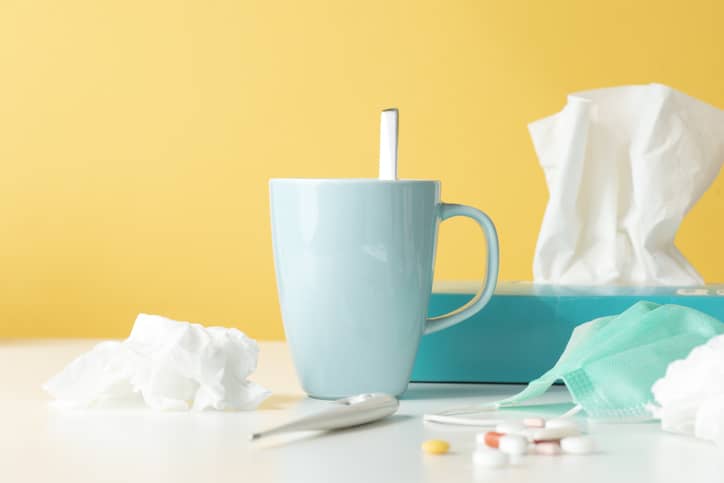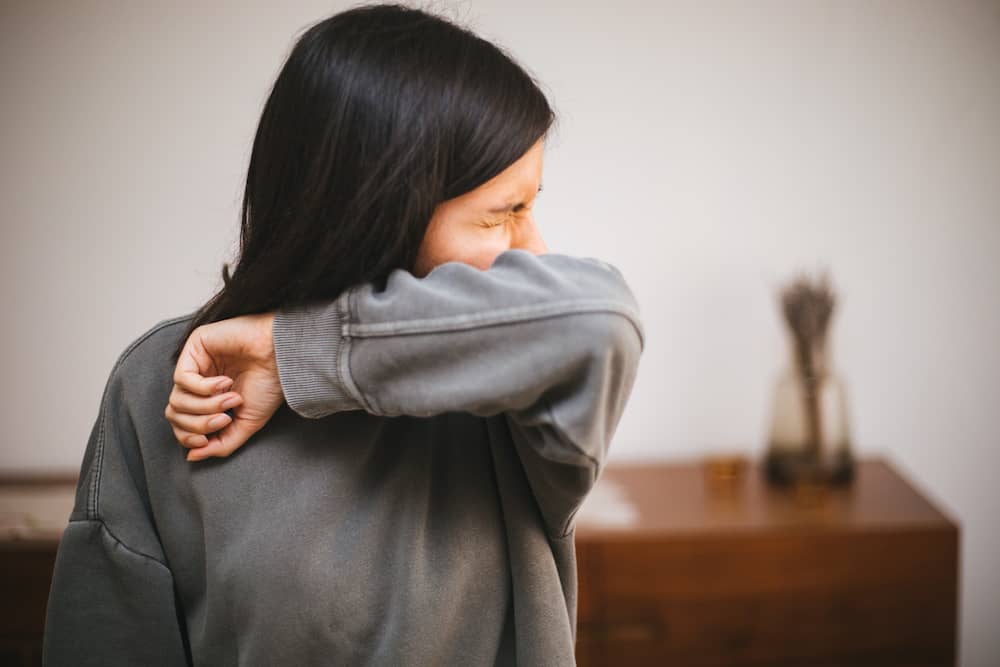You can’t cure a cold, but you can treat most of the symptoms yourself. Resting, looking after yourself and taking medication from the pharmacy will help to reduce any discomfort and speed up your recovery.
There’s also plenty you can do to tackle specific symptoms like a sore throat or a blocked nose. In fact, The National Institute for Health and Care Excellence says that self-care is the most effective way to treat a cold.
In this article you’ll find guidance on how to deal with common cold symptoms and information about medication from the pharmacy for colds.
What are the symptoms and stages of a cold?
Cold symptoms vary from person to person. If you catch a cold, you may start with a blocked or runny nose, a sore throat or sneezing. Some people find they develop a cough, a mild fever or a slight headache as their cold develops.
Symptoms typically get worse for the first 3 days and then improve as your body fights the infection. However, some symptoms can last for up to 2 weeks.
Treating a cold with self-care
The best self-care strategy will depend on your symptoms. If you have a sore throat or a bad cough you can try sucking menthol sweets or gargling salt water. Some people find that drinking warm water with fresh lemon and honey helps a sore throat.
If you have a blocked or runny nose you can apply a vapour rub to your back or chest. Inhaling steam may also help to relieve congestion, but take care to avoid scalds or burns if you try this. A safer option is to sit in the bathroom while running a hot shower.
Above all, try to get plenty of rest and eat well. There’s no evidence to suggest that ‘starving a cold’ helps to speed up your recovery, but healthy food may bolster your immune system and help your body to fight an infection.
There’s usually no reason to miss work or school because of a cold.
Common cold medication
A doctor may advise taking painkillers such as paracetamol which may help to reduce discomfort and treat some of your symptoms.
A pharmacist can also recommend other treatments to help relieve your symptoms. However, be careful if you take other medication. Most cold remedies from the pharmacy contain painkillers and it’s easy to take unsafe amounts of these drugs if you combine cold remedies and normal painkillers.
Always speak to your pharmacist or doctor for further guidance on whether to use these medications and how to get and use them.
Some cold medications can also make you drowsy, so try to avoid driving or operating machinery while you’re taking them.
Saline nasal sprays should be used with caution. These can provide effective short-term relief but if you use them for more than 5 to 7 days in a row they can make your nose feel more blocked.
If you’re unsure about the best cold medication to use or you’re concerned about potential side effects, talk to a pharmacist. Pharmacists can offer advice about medications for a cold and guidance on how to manage your symptoms.
If you’d like more information about treating a cold at home, see our article on natural remedies for a cold.


